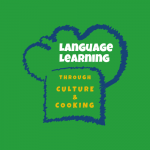 Read the ALTER project’s nationals & transnational reports!
Read the ALTER project’s nationals & transnational reports!
The reports offer interesting insights from the primary and secondary research carried out in all partner countries

Key findings from Turkey, Greece, Bulgaria, Austria and Spain.
The ALTER project’s Transnational Report has been published on our website, consolidating the results from all partners’ National Reports that are also uploaded on the website’s “reports” section! The reports offer interesting insights from the primary and secondary research carried out in all consortium countries (Turkey, Austria, Bulgaria, Greece, Spain) about the existing web-based professional profiling methodologies & practices, as well as the existing level of digital skills & competences of adults attending alternative educational institutions.
More specifically, the transnational report summarizes the desk research and stakeholder’s interviews (50 in total) on how digital and social media are used for job search at transnational level and, in addition, discusses the key findings reached through organized focus groups and online surveys with:
a) educators of adults (58 in total), expressing opinions about their level of digital skills and
b) adults having dropped out of school and attending alternative educational institutions (96 in total).
The Transnational Report is available in English, while its executive summary is translated in all partners’ languages.
Our second Newsletter contains more details.

 It is our pleasure to invite you to the 10th REVEAL conference, this year hosted by the consortia of the projects CIM, PITCH and Job Bridge on December 10th and 11th, 2020.
It is our pleasure to invite you to the 10th REVEAL conference, this year hosted by the consortia of the projects CIM, PITCH and Job Bridge on December 10th and 11th, 2020.![]()

 After almost a year, the project Language Learning through Culture and Cooking (LLCC) has entered a key phase when it comes to the successful implementation of this new and innovative EU-funded project. It tries to combine the topics of language learning, cookery and intercultural dialogue creating a totally new training programme.
After almost a year, the project Language Learning through Culture and Cooking (LLCC) has entered a key phase when it comes to the successful implementation of this new and innovative EU-funded project. It tries to combine the topics of language learning, cookery and intercultural dialogue creating a totally new training programme.



 The COVID-19 pandemic has brought ageism into the national debate. We’ve seen prominent journalists arguing that a ‘cull of the elderly’ could benefit the economy, sparking necessary debates about attitudes to older people. The horrifying situation in care homes, and the extremely difficult situation facing many older people who are self-isolating, has opened many people’s eyes to the ageism that is rife in our society.
The COVID-19 pandemic has brought ageism into the national debate. We’ve seen prominent journalists arguing that a ‘cull of the elderly’ could benefit the economy, sparking necessary debates about attitudes to older people. The horrifying situation in care homes, and the extremely difficult situation facing many older people who are self-isolating, has opened many people’s eyes to the ageism that is rife in our society. The I-CARE project wants to address these important questions, and the first step to gaining a better understand of the context is to listen to the people directly involved.
The I-CARE project wants to address these important questions, and the first step to gaining a better understand of the context is to listen to the people directly involved. e-VIVA stands for “Enhancing and Validating service related competences in Versatile learning environments in Western BAlkan Universities” (e-VIVA). Since November 2019 university partners have been busy with implementing meetings and training activities. A third international training course took place in Essen (DE) in the beginning of March 2020.
e-VIVA stands for “Enhancing and Validating service related competences in Versatile learning environments in Western BAlkan Universities” (e-VIVA). Since November 2019 university partners have been busy with implementing meetings and training activities. A third international training course took place in Essen (DE) in the beginning of March 2020. Our EU-funded project COMMIT (“COMMunIcation campaign against exTremism and radicalisation”) helps to prevent young people (between 13 – 25) in 4 EU countries from extremism, radicalism and terrorism, providing them with skills relevant to co-create counter narratives challenging extremist online propaganda and alternative narratives through promoting democratic values, tolerance and cooperation.
Our EU-funded project COMMIT (“COMMunIcation campaign against exTremism and radicalisation”) helps to prevent young people (between 13 – 25) in 4 EU countries from extremism, radicalism and terrorism, providing them with skills relevant to co-create counter narratives challenging extremist online propaganda and alternative narratives through promoting democratic values, tolerance and cooperation.